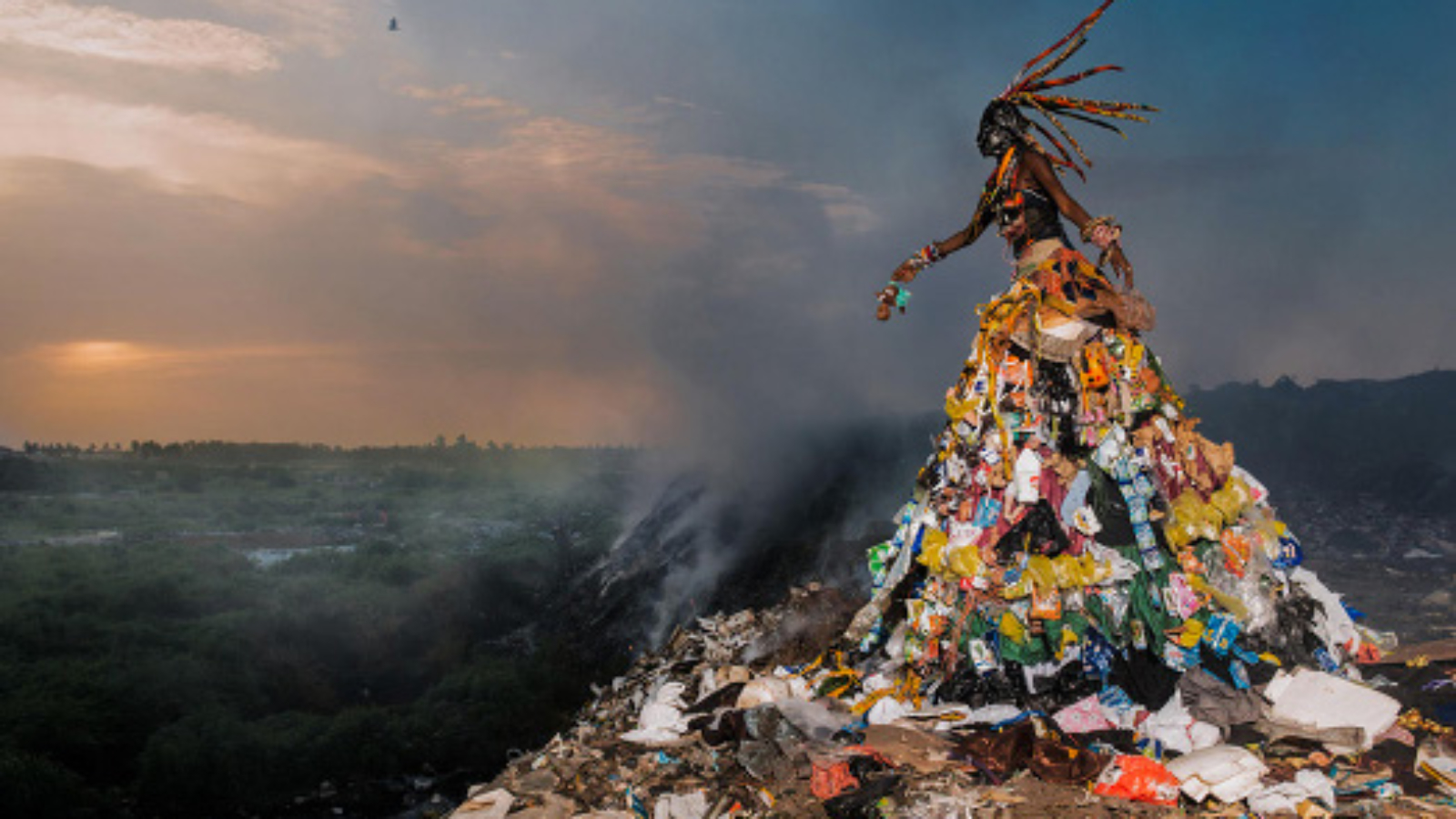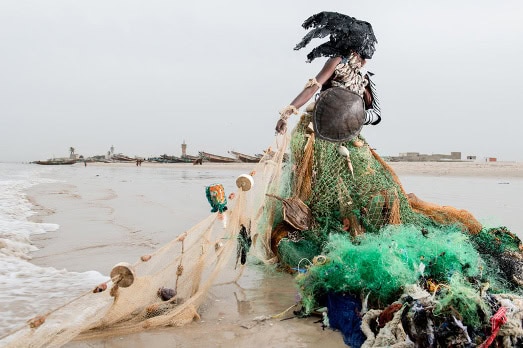
The agonizing divinities created by artist and photographer, Fabrice Monteiro, born in Benin (Africa), with Belgian mother, denounce the serious pollution of the African continent through the artistic poetry.
Africa, as well as Asia, are clandestine deposits of large amounts of waste produced in the globalized world.
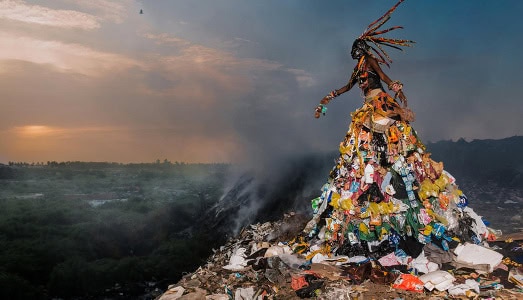
Allegories of the Great Mother in Tatters, Venus of the Tatters of the Poor, are some of the overwhelming pictures which in October were exhibited at the Modern Art Museum of Louisiana, USA. Monteiro, to create the photo shoot, joined the clothes designer Dously and EcoFund NGOs. The project was called The Prophecy, and the series was photographed in ten locations in Senegal.
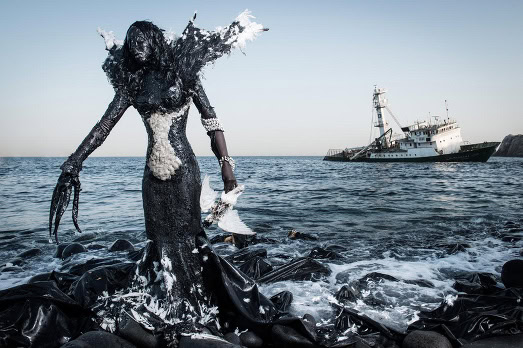
The probability of being the goddesses of the future is very large.
They are partially covered with costumes made of garbage and debris that interact with a polluted landscape. The clothes were built with the own material found in the place, which gives an idea of the dirt they found in the spaces before the pictures were taken. To compose his work, Monteiro joined the pieces of a world in agony.
Fabrice Monteiro is not the only African artist to denounce pollution in Africa. Before him, another African artist, Pascal Marthine Tayou, born in Cameroon Republic, who now lives in Belgium, has raised the plastic to the nobility of a installation. He participated in several biennials in the world and in Brazil, the 25th. Biennial sharpened the curiosity with the work done with dog houses, referring to the homeless of marginal Tiete.
Critical Look
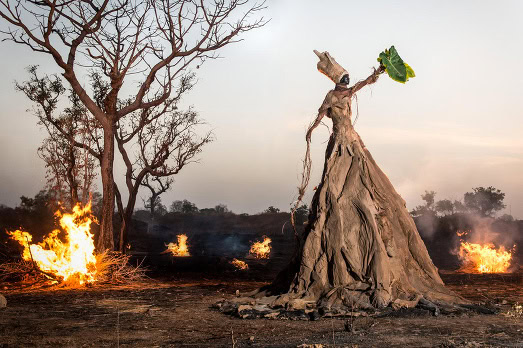
The pictures of Fabrice Monteiro put on the agenda a serious matter and with few practical solutions. For decades, illegal disposal of toxic waste made by first world countries is being denounced, as well as the consequences on the health of people living there. The internet is to prove, considering the multitude of matters dealing with the issue. Nothing has changed in comparison to the colonial past, when countries like France, Italy, among others, dominated people.
With poetic art presents the reality of the twenty-first century: the extent to which the ghost of colonialism persists and pursues the ends of the third world. Today, in a globalized world, the colonizer domain is disguised as democracy in the dark flag shaky in the name of freedom.

